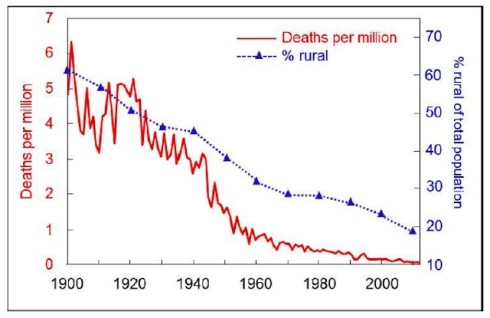Steve Randy Waldman has another awesome post, and this case he tackles the mystery of how you can have a reasonably well functioning wealthy liberal democracy at the same time as a huge segment of the population is shockingly poor. Wealth inequality is a simple answer, but then why doesn’t the democratic process work to fix that? So you get a “trilema.” I love triangles.
His names for the three sides of this triangle are: Liberal, Equality, and Nonpathology. Clearly this idea is going to have trouble getting traction if only because that last one is so odd. And that’s the key idea. You can have a functioning liberal democracy along with extreme inequality if you can get everybody to flesh out the bible’s “For you always have the poor with you” sufficiently. If the majority of the population accepts that the root cause of both is that the poor are afflicted with some pathological flaw – genetic say, or bad maybe bad fashion sense. This is amusingly covered in the in Westside Story’s “Officer Krupke.”
This technique for suppressing the natural feedback loop you’d expect in a democracy is. This isn’t just the usual technique of reactionaries to say that it would be futile to try and fix a problem they don’t care much about.
Once you decide that the problem is that the poor are suffering from the disease state – which is only true to the extent that they are poor – you can call in various quacks to prescribe their favorite prescription. Interview training say. Or better impulse control. Or more entrepreneurship risk taking. Or scolding that they should study harder. You know: the things that the well off struggle to improve in their own lives. This is totally a win for the elites because the prescriptions just happen to server their goals. Tax cuts!
It’s a very good essay, particularly the tail end where he addresses some of the stories elites tell, and the poor often accept, about the pathological behaviors of the poor.
